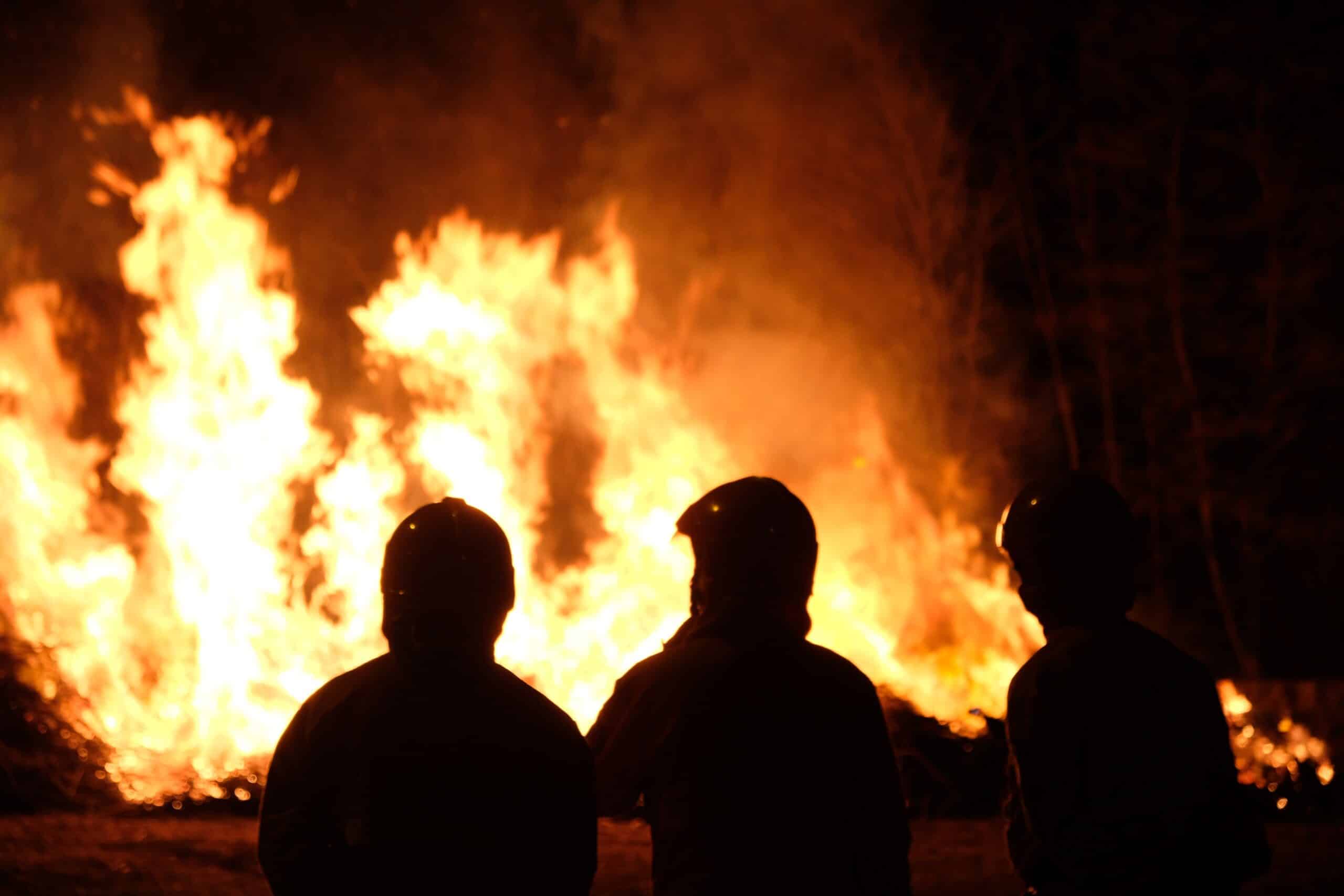For people who work outside, the jobsite can be a dangerous place in winter. Construction workers, utility crews, road maintenance teams, mail carriers, delivery people, and other physical workers must remain aware of the dangers the cold weather can present.
Temperature extremes and other weather-related dangers kill more than 600 people every year, according to the National Safety Council. Even non-fatal injuries are a constant threat to individuals who work outdoors in the cold.
To maintain a safe work environment for all, supervisors and team members must monitor the temperature, including the intensifying effects of chilling wind, and keep an eye out for symptoms of cold-related illnesses in coworkers.
All employees who will be working outside for long periods must be trained on what steps to take to keep themselves and their teammates safe in the cold. Below are some of the major hazards of working outdoors when temperatures dip and what can be done to avoid these perils of the winter season.
Some of the most dangerous winter weather-related injuries for outdoor workers include frostbite, trench foot, and hypothermia. Other cold weather-related threats to workers are slipping on snow or ice and becoming injured in the process of snow or ice removal.
All workers should be trained on the ways to deal with these winter-weather concerns. To that end, this discussion provides details on how to avoid these dangers and how to recognize and respond to these ailments when they are experienced by others.
Frostbite
Frostbite occurs when the extremities are affected by prolonged exposure to cold temperatures. The condition can cause nerve damage or necessitate amputation. Frostbite begins with a feeling of numbness, which can be difficult to detect in the cold. Frequent breaks to warm up are a simple yet effective way to head off the dangerous effects of potential frostbite.
The major symptoms to look out for include:
- Numbness in extremities including toes or fingers as well nose and ears
- Skin discoloration; white, gray, blue, or yellowish skin
- Waxy or cold skin
- Loss of fine motor dexterity or pincer grip
If frostbite is suspected, the affected person should be moved to a warm location. The injury should be handled with great care so as not to exacerbate the damage. If blisters form, do not break them. Soak the area in warm water until it recovers warmth and returns to its proper color. Dry, sterile bandages may be used to dress the area, using gauze to keep affected fingers or toes separated. Keep the area out of cold until it can be evaluated by a medical professional, which should happen as soon as possible.
Trench Foot
Trench foot is caused by prolonged exposure to cold and damp environment. Proper footwear is essential when working in wet conditions such as rain and snow. Jobsites with muddy or wet surfaces can increase the chances that a worker will develop trench foot.
To prevent trench foot, feet should be kept clean and dry. Insolated boots and thermal socks can help.
Hypothermia
Hypothermia can develop when a person’s body temperature becomes dangerously low. To avoid this, people must avoid being out in the cold for long periods. If being out in the cold is necessary, frequent breaks are necessary. It is vital to stay dry, which is sometimes difficult when hard work causes workers to sweat. Sweating can cool a person too quickly in extreme temperatures and can cause a dangerous drop in body temperature.
Hypothermia may be difficult to recognize. Symptoms include disorientation, labored or slurred speech, memory loss, exhaustion, sleepiness, intense shivering, and a body temperature below 95 degrees Fahrenheit. Hypothermia is a very serious condition that requires immediate medical attention. While waiting for emergency help to arrive, try to increase the person’s core body temperature by warming them gradually. Do not give the person hot beverages. Also, alcohol should be avoided, as it will increase heat loss.
Slip and Fall Accidents in Winter
In addition to the effects the cold has on human bodies, the impacts that winter weather conditions have on the work environment create a set of added dangers. Snow and ice can create a danger of slip and fall accidents, while work for crews tasked with snow and ice removal involve further risk to health and safety.
Employers must ensure that outdoor walkways and surfaces are free of snow and ice that can increase the chances that someone will slip and fall. Snow should be cleared, and ice should be treated with deicer as soon as possible and as frequently as necessary to mitigate danger.
Although it is best to avoid walking on slippery ice or snow, that is not always possible. For some workers, notably those whose job it is to remove ice and snow, it is necessary to navigate such slippery terrain. Individuals who encounter such surface conditions should:
- Wear proper footwear with sufficient traction
- Slow down
- Walk in short steps
- Stay aware of changes in footing
Workers who must work at elevated surfaces are at the greatest risk when working in icy conditions, as falling from a rooftop or catwalk is extremely dangerous. These workers must be outfitted with fall protection equipment. The stability of ladders can likewise be affected by snow and ice on the ground.
New Jersey Workers’ Compensation Lawyers at Kotlar, Hernandez & Cohen, LLC Help Injured Employees Secure Adequate Benefits after Work Accidents
If you were hurt in a work accident that left you with mounting medical bills and the inability to work, you should be able to collect benefits from your employer’s Workers’ Compensation program. The New Jersey Workers’ Compensation lawyers at Kotlar, Hernandez & Cohen, LLC can ensure that you receive payments that meet your needs after a devastating work accident. Call us at 856-751-7676 or contact us online for a free consultation. Our offices are in Mount Laurel, Cherry Hill, Trenton, and Vineland, New Jersey; and Trevose, Pennsylvania. We serve clients throughout New Jersey and Pennsylvania.





